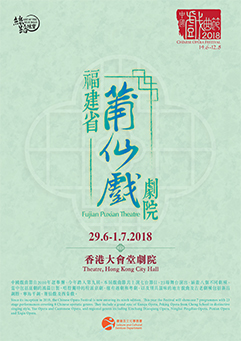Fujian Puxian Theatre

Introduction
Originated from the regions of Putian and Xianyou, Puxian Opera was originally known as ‘Xinghua Opera’. It is one of the five major opera genres of Fujian, alongside Liyuan Opera, Fuzhou Opera (Min Opera), Gaojia Opera and Xiang Opera (Gezi Opera). Puxian Opera has a long history and consists of more than 5 000 titles of traditional stock repertory, with about 80 of them retaining all the elements of the original Southern Opera by its cultural provenance. Therefore, the genre is known as the ‘living fossil’ of Southern Opera of the Song and Yuan dynasties. The genre was inscribed in the first listing of National Intangible Cultural Heritage of China in 2006.
Puxian Opera is influenced by puppetry. Many of the gesturing remind the audience of the style of marionettes. In terms of music, the genre features a rich repertoire of set tunes and unique vocal styles. It is sung in the dialect of Puxian and has preserved much of the heritage musical sound of Southern Opera from the Song and Yuan dynasties. The singing is a vocal style packed with rich local colours and flavours.
All the plays in this programme are the traditional repertoires of Puxian Opera. Winner of the Plum Blossom Award for Chinese Theatre and National Class One Performer Wang Shaoyuan will join Wu Qinghua and Huang Yanyan, the Director and Vice Director of Fujian Puxian Theatre, and lead the fine cast to perform The Imperial Scholar and the Beggar, Thrice Begging Fan Lihua, and an excerpt performance. In these performances, the unique nuance of Puxian Opera will be demonstrated through the specific stylised movements of the genre, such as ‘sedan-chair carrying’, ‘chair routine’, ‘floor-sweeping skirt’, ‘the three-legged cane’ and ‘the hoe routine’, etc.
Fujian Puxian Theatre
Programme Details
29/6 (Fri)30/6 (Sat) 1/7 (Sun)29/6 (Fri) 7:30pm
The Imperial Scholar and the Beggar
The play features a range of roles, including zhengdan (the leading female role), tiedan (the spinster role), zhengsheng (the main civil male role), laosheng (old male role), chouzai (clown role), etc. The performance routines of Puxian Opera are played out fully in the play. For example, the umbrella routine of the dan role when she goes out and her virtual weaving; the fan tricks of the civil male and old male roles; the exaggerated movements of the clown role and the spinster role, etc. The most noteworthy is the chase sequence in the last scene. Using the ‘stamping’, ‘swinging’ and ‘qianjinzhui’ steps of the dan role; the ‘seven-step sequence’ of the clown; the ‘three-legged cane’ of laosheng, an intriguing chase-and-dance sequence is formed. In addition, the folk tune of the ‘bangudong’ genre – The Rustic Song (also commonly known as ‘The Poem of Begging’) – added luster to this play.
Huashi and Huachun are brothers of the Ding family. Their sons are born on the same day. When the infants turn one, uncle Wang Guoxian gives the two child a reading. Wang concludes that Wenlong, the son of Huachun, is born with the life of a beggar; Wenfeng, the son of Huashi, is born to be an imperial scholar. Huashi and his wife believe the reading and spoil their son Wenfeng, who is even allowed to go to a casino. Liu, the wife of Huachun, does not believe Wenlong is born to be unlucky. Liu endures the hardships of her bullying in-laws and a ran-away husband to raise her son strictly. She begs Li Zhongshu, a teacher at the study hall to educate her son. Wenlong is inspired to work hard on his studies and eventually becomes an imperial scholar. Wenfeng, who is born to be an imperial scholar, however, becomes a bandit.
Main Cast: Huang Yanyan, Wu Qinghua, Ma Yanyu, Yang Junsheng, Zheng Rensen
The running time of the performance is approximately 2 hours and 30 minutes including an intermission of 15 minutes.
30/6 (Sat) 7:30pm
Thrice Begging Fan Lihua
This play is performing a martial sequence with civil skills. Amongst these skills, the routines of wusheng and wudan (martial male and female roles) in Puxian Opera are used, such as ‘phoenix-tail hand’, ‘spear-holding swing steps’ and ‘horizontal dagger stamping steps’, etc. These do not only highlight the characteristics of the opera genre, but also adorned the personalities of characters.
In early Tang dynasty, Fan Hong, a general defending Hanjiang Pass, is lured by the state of Xiliang; he betrays his country and submits to the enemy. Cheng Yaojin is ordered to go on a punitive expedition. Fan Lihua, the daughter of Fan Hong, has superior martial skills and understands the higher notion of patriotism. She decides to return Hanjiang Pass to Tang. She is also match-made by Cheng Yaojin and becomes the wife of Xue Dingshan. Xue Dingshan suspects the intentions of Fan to surrender to Tang. He also has grudges over Fan because he was brought down his horse at the challenge of Fan a day ago. On the wedding night, Xue humiliates Fan, and Fan takes off. As a military emergency develops, Dingshan must beg Fan Lihua at Hanjiang Pass on his own. Dingshan is ridiculed by the guards at the Pass. He returns in anger. As the military situation worsens, Xue Dingshan is ordered to beg for Lihua’s help for the second time. Seeing strong insincerity from Dingshan, Lihua’s maid Shizhen sends him away. Yang Fan of Xiliang launches a battle at the border again, and the Tang army is under siege. They have no choice but to beg for Lihua’s help again. Fan Lihua leads an army to help with the battle and wins eventually. Dingshan feels sorry and begs for Lihua’s return for the third time. The couple reunites and conquer the West together.
Main Cast: Wang Shaoyuan, Wu Qinghua, Zheng Rensen, Yu Lixiang, Lin Chunhong, Zheng Chaofan
The running time of the performance is approximately 2 hours and 30 minutes including an intermission of 15 minutes.
1/7 (Sun) 2:30pm
Excerpts
Gualao Grows Gourds
The play demonstrates a few routines performed by the laomo (old man) role in Puxian Opera, including ‘three-legged cane’, the prop-assisted ‘hoe routine’, as well as the uniquely stylish ‘golden chicken pecking rice’, ‘leg-bend and back-kick’, ‘digging with a hoe’, ‘reverse donkey ride’ – all of which comprise complicated artistic movements that reflect everyday life. They illustrate the eccentric, archaic and special art form of Puxian Opera.
This is an excerpt adapted from the ancient play Zhang Gualao. On a sunny day, Zhang Gualao grows gourds with his granddaughter. The old man and the little girl joyously take a break from their busy work and ride a donkey to the market.
Main Cast: Zheng Rensen, Yu Lixiang
Mourning from The Butterfly Lovers
Mourning is a famous Puxian Opera excerpt, and ‘chair routine’ is the highlight of this play. Zhu Yingtai performs around chair. She uses the tip of her left and right shoulder to support the left, right sides and the back of the chair. The chair is supported to an upright position. The movement is delicate and elegant. The performance is accompanied by a subtle melody Zhu Yun Fei, which alternates with the nostalgic and sorrowful Shi Ba Cha and plum blossom (alto-keyed suona) portamento. The singing is appropriately matched with the gesturing to retell the melancholic and moving love story.
Zhu Yingtai is shocked to learn about the death of Liang Shanbo. After obtaining permission from her parents to mourn for her beau, Yingtai rushes to the Liang’s to pay her respects. She is devastated and pours out her heart to a chair – an object on which her feelings for Shanbo are projected. All of a sudden, Shanbo shows up. Yingtai realises the Liang’s has set this up so that the couple can meet. Yingtai feels confused and wants to say good bye, but Shanbo insists that she stays. He vows that he will always be with Yingtai. The play is called the ‘Red Mourning’ and concludes with a happy ending. It is derived from the full-length play of The Butterfly Lovers.
Main Cast: Huang Yanyan, Yu Zhi
Bearing the Sedan-Chair from Chuncao Barging into the Court Room
It is a comedic twist of the role switching between the magistrate and Chuncao with one of them sitting on a sedan chair and the other follows. Traditional footwork cues such as ‘stepping’, ‘stamping’, ‘double hop’, etc. are used in the performance, which work together to create an intriguing dance that depicts the story line of bearing a sedan chair. The routine illustrates the charisma of the art of Puxian Opera.
In a court room, a maid of the prime minister’s house Chuncao tries to rescue Xue Meiting, who stood up and accidentally killed the son of a minister. Chuncao lies that Xue is the son-in-law of the prime minister. Hu Jin, the magistrate, wishes to confirm the claim from the lady of the house. He asks Chuncao to walk to the house of the prime minister with him. Worried that her lady would not confirm her lie, Chuncao is scared of punishments. To buy time, she makes excuses to force magistrate to get off the sedan chair to walk with her. In the end, the magistrate offers the sedan chair to Chuncao. By then, Chuncao has already come up with an idea to persuade her lady to confirm the identity of Xue. She makes use of the opportunity and asks the magistrate to pretend to be her servant. Chuncao sits prestigiously on the sedan chair on her way back to the mansion.
Main Cast: Wang Shaoyuan, Zheng Rensen
Cosmetics Shop from Guo Hua
With the help of fan cues, the admirable and romantic image of Guo Hua is portrayed – he is reputed as an exemplarily romantic male role in Puxian Opera. Xie Yuying, who should be performed as a guimendan (high-born, unmarried lady), is also partly portrayed as a xiaodan (young female), perfectly presenting the adorable beauty and cuteness of the character. There is also an interlude of the clown role A’gao. With a set tune that features one-of-a-kind melodic and rhythmic modes, this excerpt has a special lingering charm.
Guo Hua is a scholar who admires Xie Yuying. He frequently visits her cosmetics store and tries to find an excuse to express his fondness. Xie Yuying begins to have reciprocal feelings, but she is holding back in her words. Guo Hua and Yuying meet but their rendezvous is found out by A’gao, the hawker . Their secret meeting is almost made known. Yuying says yes to Guo Hua and suggests, ‘When the light is out and when it is quiet, I will marry you at Xiangguo Temple’.
Main Cast: Wu Qinghua, Huang Yanyan, Zheng Rensen
Rescuing Brother-in-law from Li Yangui
This is a play that emphasises on singing and gesturing. The music is gentle, bold and powerful. The simple and elegant performance is sung and narrated. The traditional routines of the dan (female) role of Puxian Opera, such as ‘delicate and rough steps’, ‘floor-sweeping skirt’, various shoulder work etc. are highlighted. ‘Floor-sweeping skirt’ is a highly technical Puxian Opera routine. The actor kicks up the floor-length skirt without showing the tip of her shoes. She next walks in circles on stage, increasing the speed of her steps until it feels like she is flying. This is a routine of technicality, which demands the actor to walk with very even and very light steps. The umbrella is also used cleverly in the performance – the actor uses the movements of supporting the umbrella with various hand gestures to portray an ancient woman who is rustic, kind, bold and persistent. To right the wrong on her brother-in-law, she puts her own safety aside and travels long distance to go to the capital city. The portrayal is delicate and highly moving.
Huang Zhong is a deputy minister. He does not want his daughter marry Li Yangui from a declining family and frames Li for murdering his maid. Huang also bribes the officers of the government, and Li is eventually put into jail. Yanming, the elder brother of Li Yangui is taking the imperial exam at the capital city. The sister-in-law Cai endures hardships and walks to the capital city to rescue Yangui.
Main Cast: Wang Shaoyuan
Great News from the Capital City from Lu Mengzheng
The music of the play is very special. Jin Ting Fang features steady rhythms, while set tunes such as Zhuan and Shang Gong Hua are played alternatingly in their ban modes. The main voice is the woodwind flute diguan, which is accompanied by complicated drum patterns. The full play is packed with timeless charm. The most eye-catching in the performance is the ‘sedan-chair carrying’ that concludes the play. Two sedan-chair bearers employ both virtual and actual moves. Liu Yue’e uses a chair as a sedan-chair. Two maids accompany her. The company step to the drummed rhythm of Underwater Fish and create a unique sedan-chair dance to achieve the intended comic effect.
Great News from the Capital City tells the story of Lu Mengzheng, who has just become a first scholar in the imperial exam. A few men are sent to escort his wife Liu Yue’e to the capital city. Liu has mixed feelings and writes a poem on the wall. She bids farewell to her humble and cold dwelling and is taken onto a sedan-chair to head for the capital city.
Main Cast: Huang Yanyan
The running time of the performance is approximately 2 hours and 30 minutes including an intermission of 15 minutes.
Information provided by Fujian Puxian Theatre
Puxian Opera
Genre
Puxian Opera is one of the five major theatrical genres of Fujian, alongside Liyuan Opera, Fuzhou Opera (Min Opera), Gaojia Opera and Xiang Opera (Gezi Opera), with Puxian Opera and Liyuan Opera being the oldest in terms of history. Originally called ‘Xinghua Opera’, Puxian Opera emerged in the 5th Century, and was later brought to Putian and Xianyou in the south in a major migration of people of the Central Plains. The vernacular of those areas was the Xingua dialect, which gave the genre its first known name. After 1949, the genre was renamed Puxian Opera. Its traditional stock repertory consisted of more than 5000 titles, with about 80 of them retaining all the elements of the original Southern Opera by its cultural provenance. Its set tunes, phonological inflections, patterns of its lyrics etc. are similar to the daqu of the Tang and Song Dynasties. One typical example is Monk Mulian Saving His Mother. There are 7 role types, in the same tradition as Southern Opera, which are sheng (male lead), dan (female lead), tiesheng (young male), tiedan (young female), lengzhuang (painted face), mo (supporting) and chou (comic). Towards the early 20th Century, another role type, laodan (old woman) was added. Since the term for ‘painted face’ roles, lengzhuang, came from the zaju of Song Dynasty, Puxian Opera is dubbed a ‘living fossil’ of Southern Opera of the 13th century in the first listing of National Intangible Cultural Heritage of China in 2006.
Fujian Puxian Theatre
Performing Group
Founded in 2011, Fujian Puxian Theatre is the only major state-owned troupe at city level in Putian. Its cast comprises winners of the Plum Blossom Award and the Wenhua Award, as well as a group of outstanding young actors. In recent years, the Theatre focuses on the passing on and preservation work of Puxian Opera, which is reputed as the living fossils of Song and Yuan Southern Opera. The Theatre has restored and created 27 plays, including The Legend of the White Snake, The Imperial Scholar and the Beggar, Monk Mulian Rescues His Mother, etc., as well as 51 classic excerpt plays including Yingchun Comes Home with the Dog, Gualao Grows Gourds, Rescuing Brother-in-law, Shouldering the Chair from Mourning, etc. In 2012, the newly written play Consort Mei – The Story of Jiang Caiping won a first prize in repertoire in the 25th Fujian Province Drama Showcase. In 2014, the play The Wife of Ye Li was restored and staged at National Centre for the Performing Arts Showcase, receiving resounding success. In 2016, Mazu the Sea Goddess was presented at the 3rd Silk Road International Arts Festival (Xi’an, China), the 2nd Maritime Silk Road International Arts Festival – Chinese and Overseas Drama Showcase (Quanzhou, China) and World Mazu Culture Forum (Putian, China).
Fujian Puxian Theatre
Ticketing
1/7 (Sun) 2:30pm
Theatre, Hong Kong City Hall

- With Chinese and English surtitles
- Please refer to the Extension Activities page for details of extension activities
- The running time of each performance is approximately 2 hours and 30 minutes including an intermission of 15 minutes.
Programme Enquiries: 2268 7325
Ticketing Enquiries: 3761 6661
Credit Card Telephone Booking: 2111 5999
Internet Booking:www.urbtix.hk
Please click here for discount scheme details.
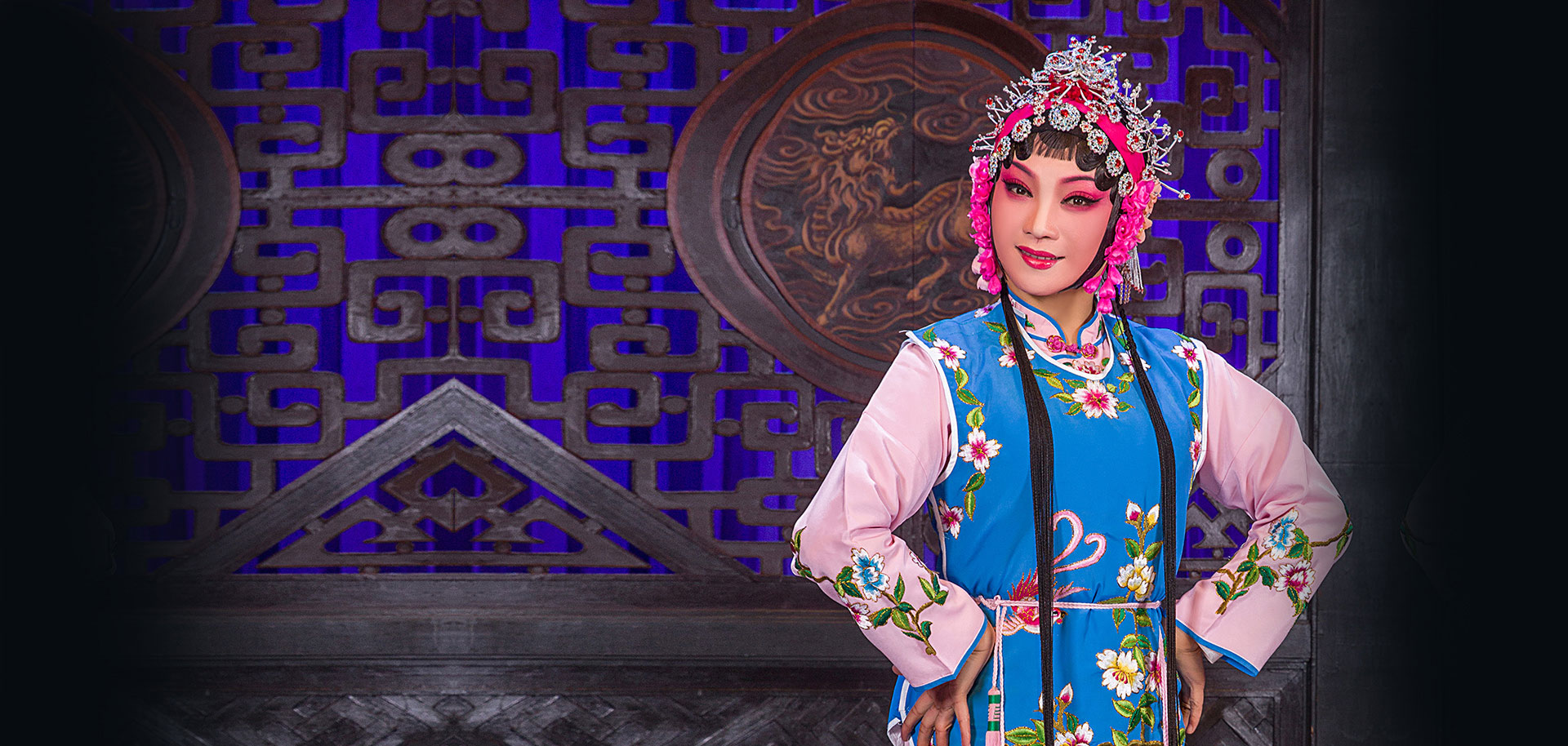
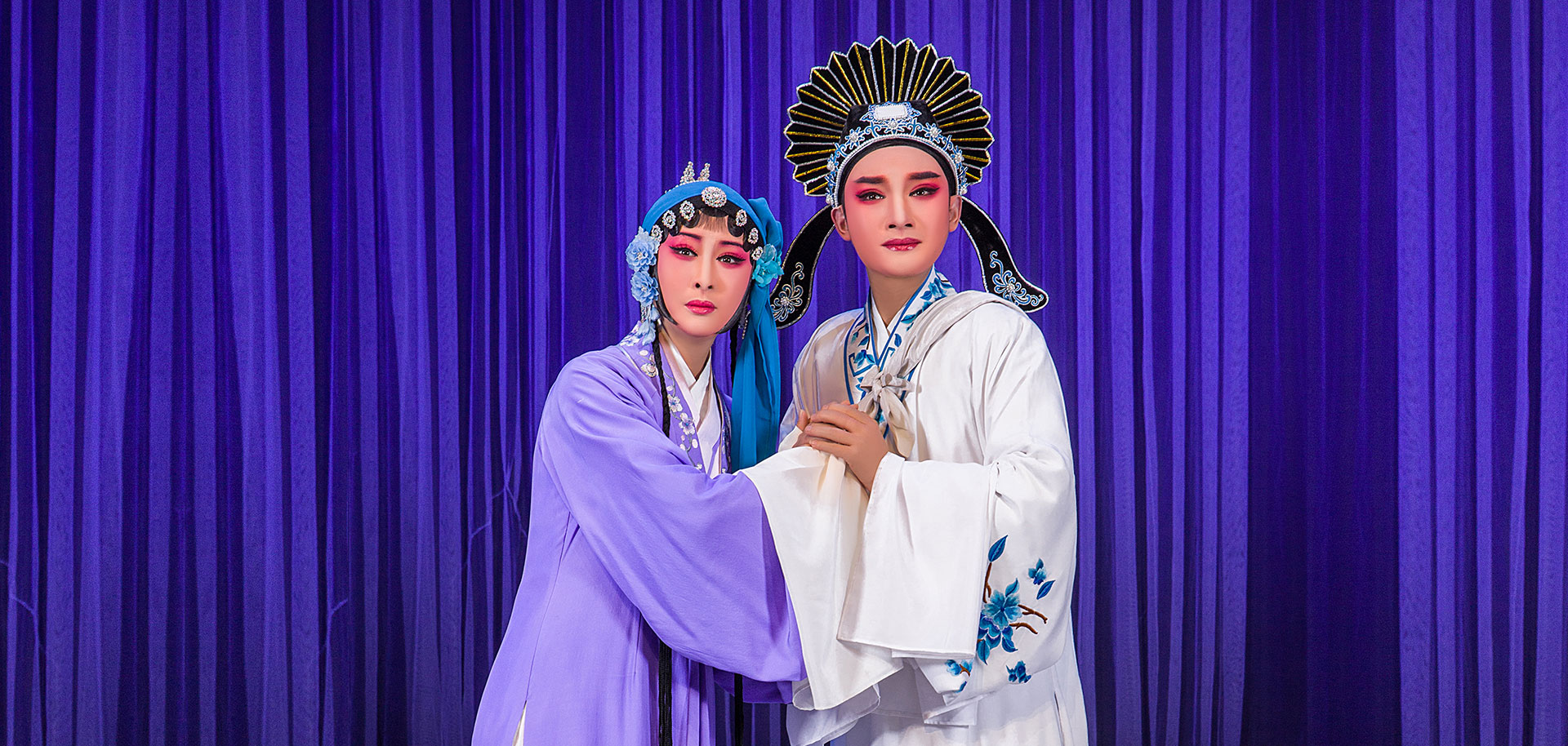
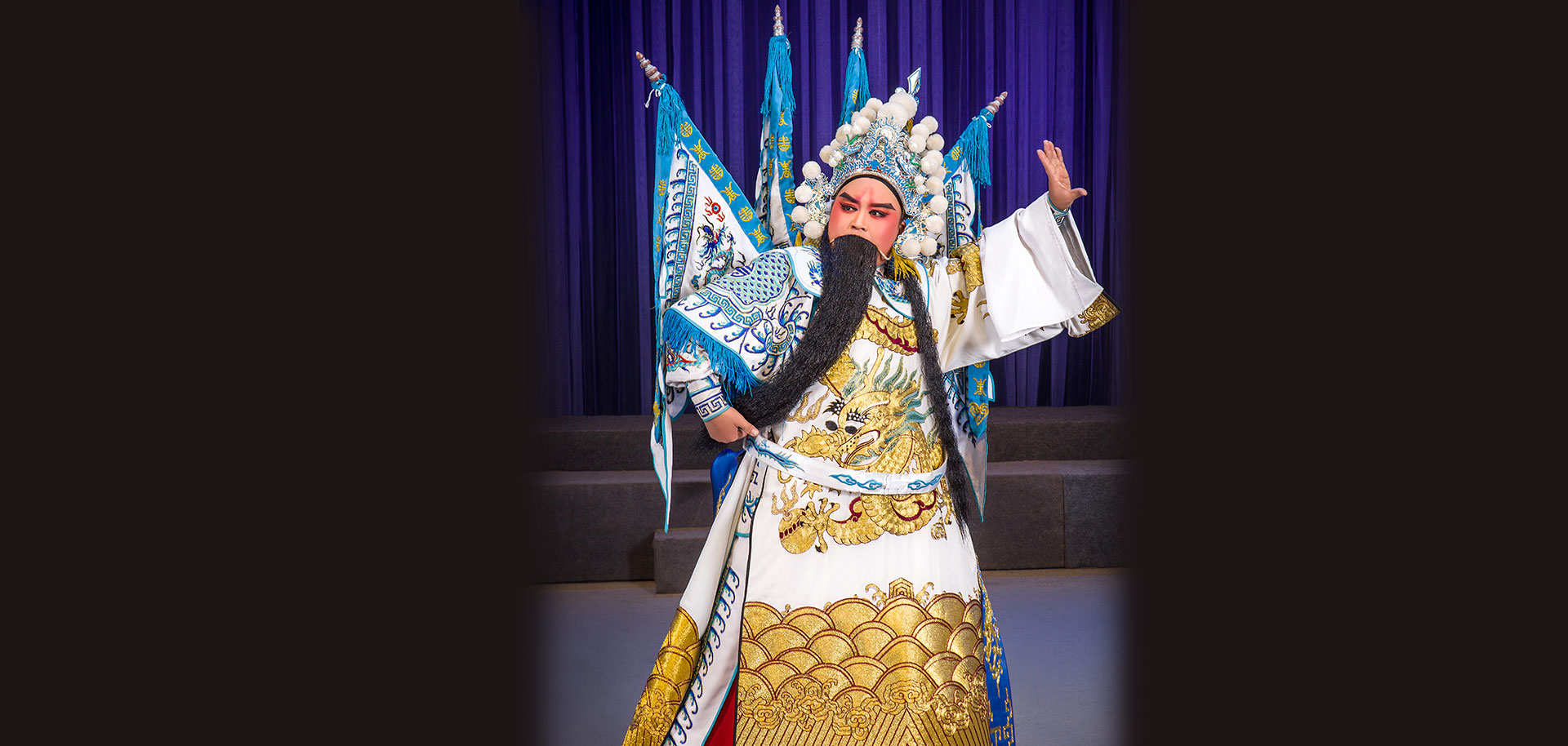
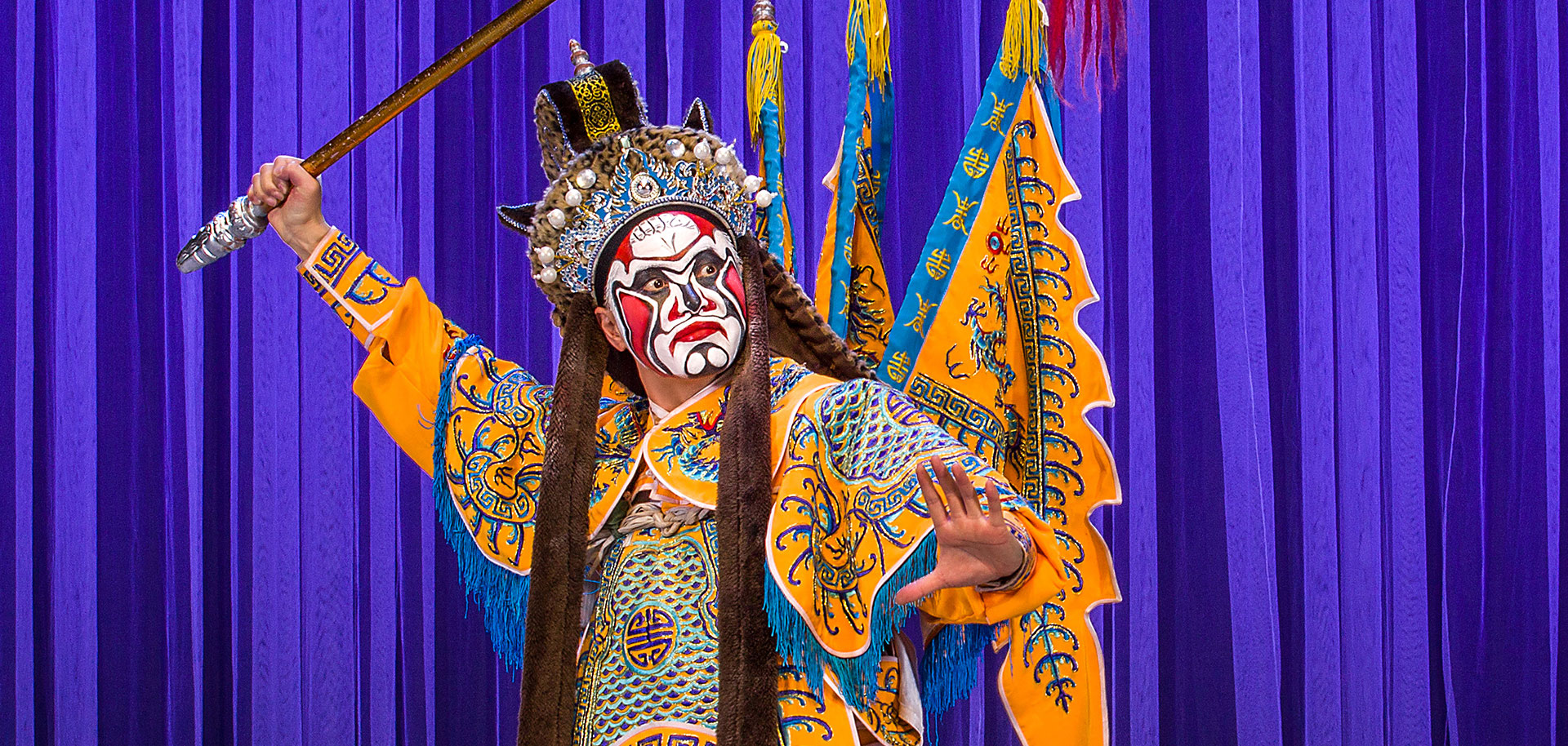
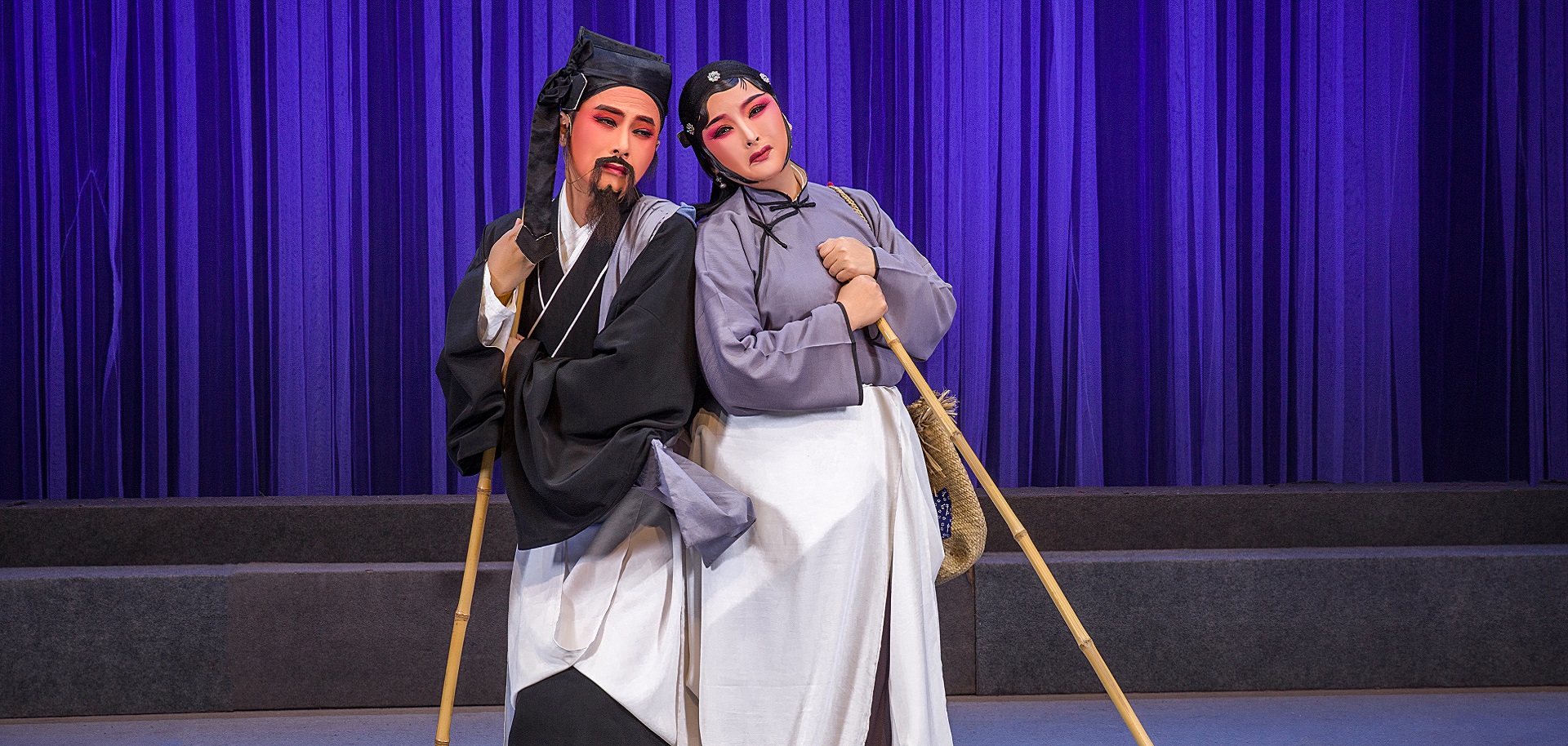
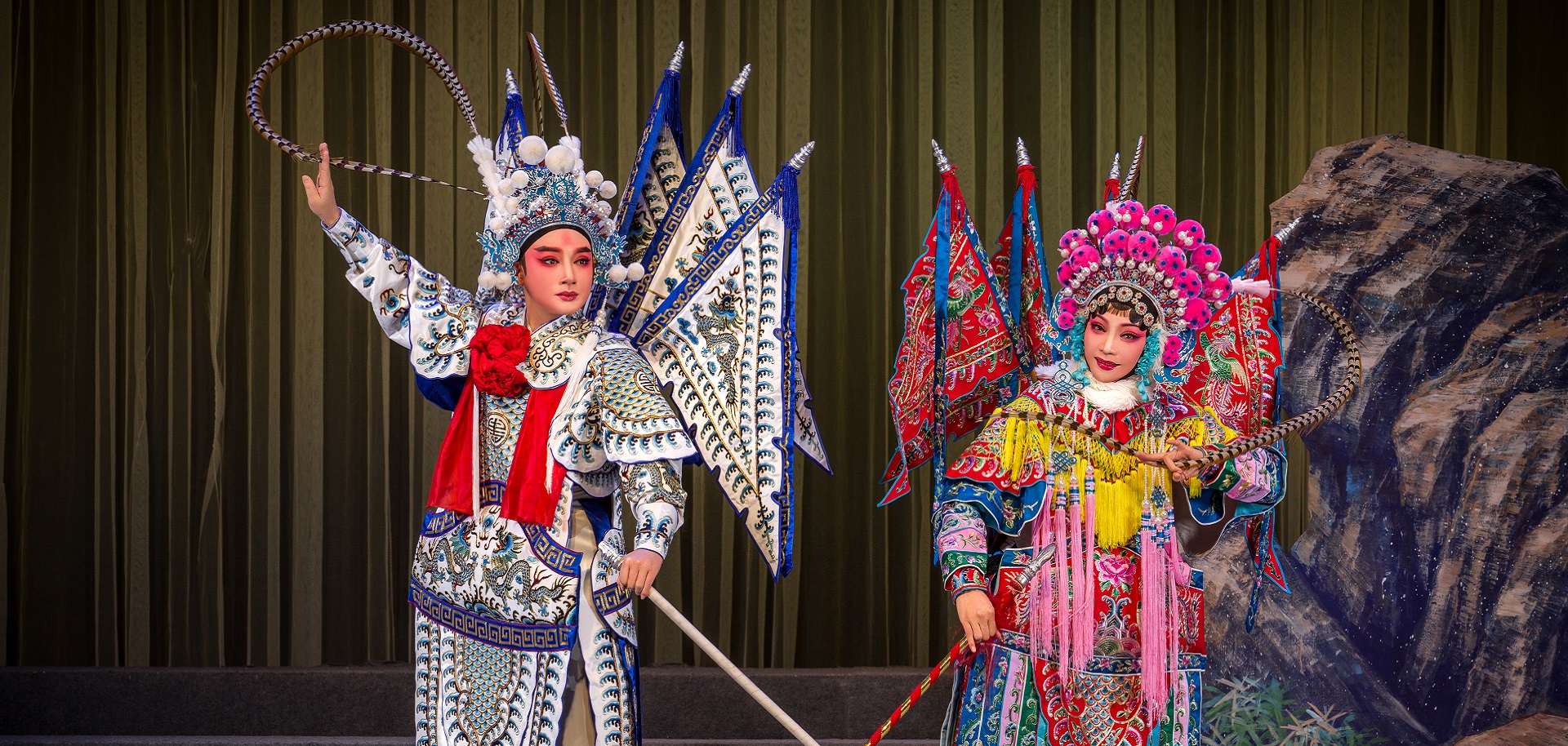
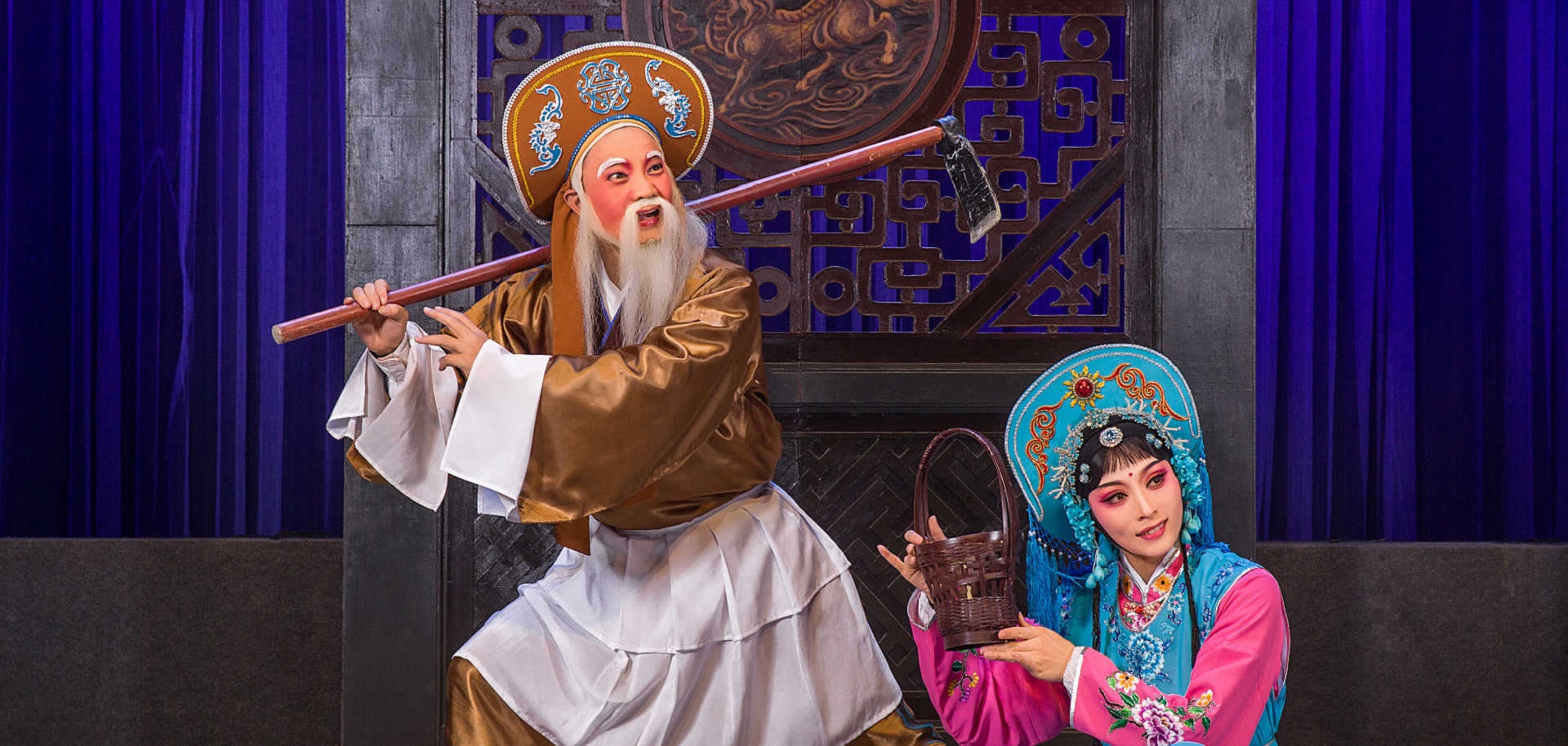
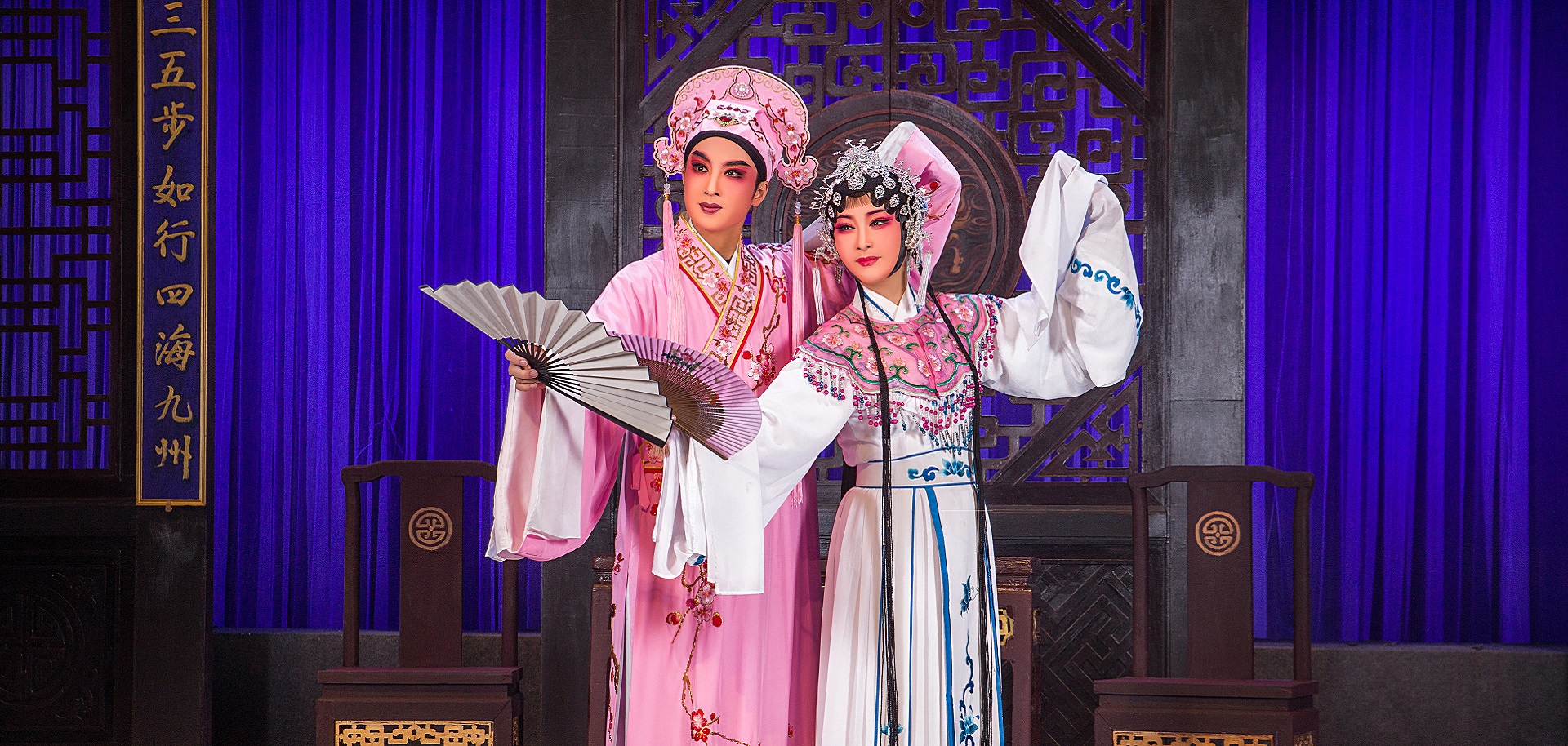
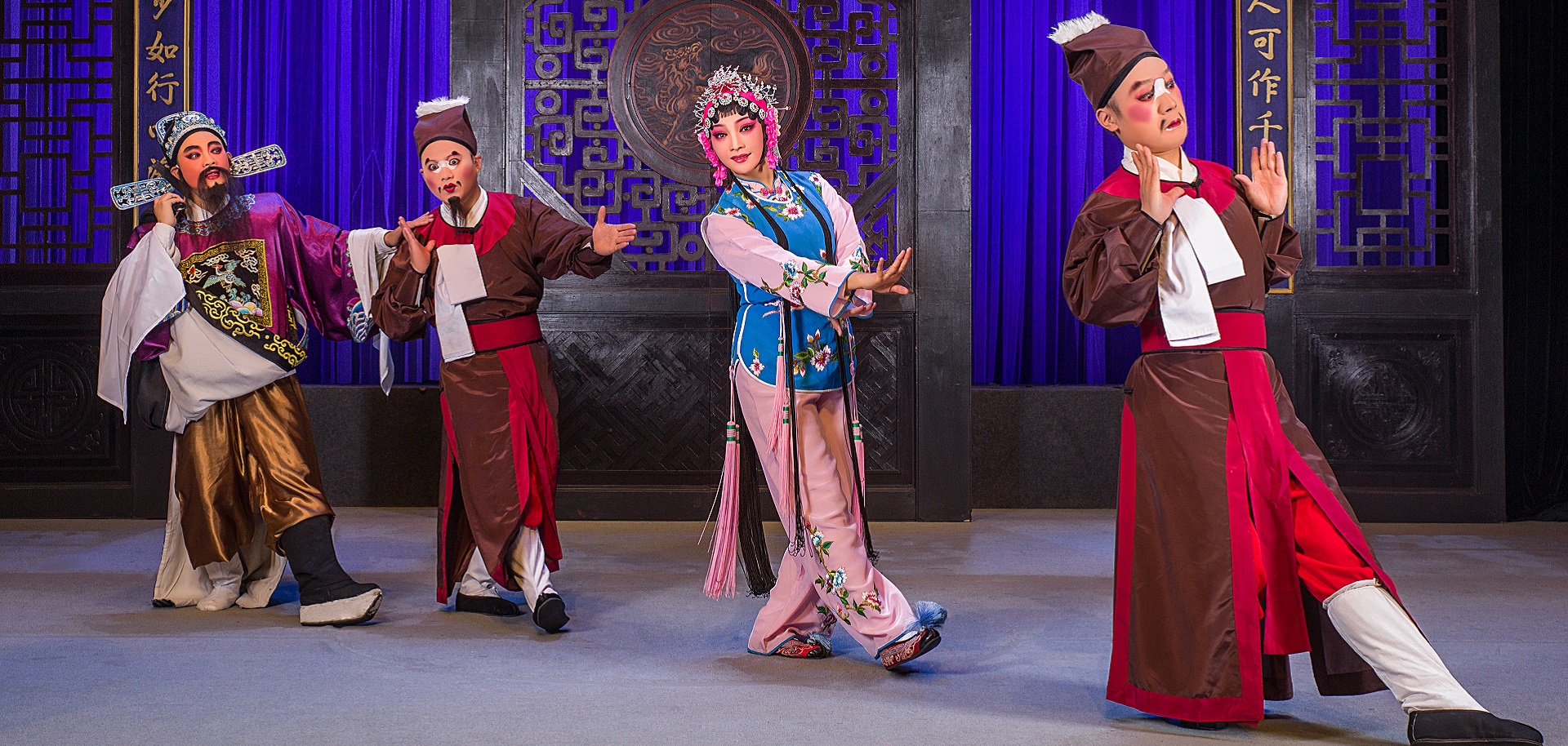
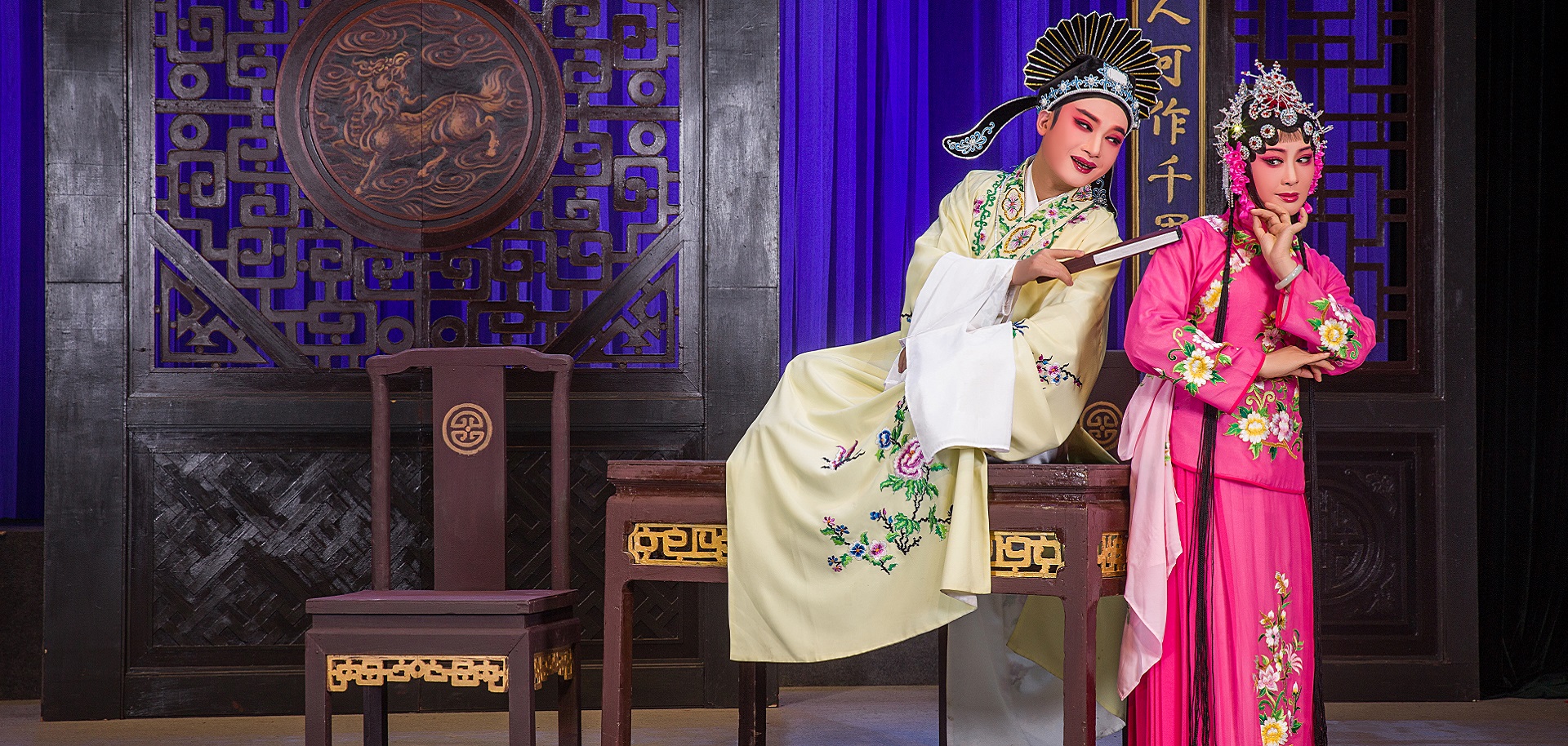
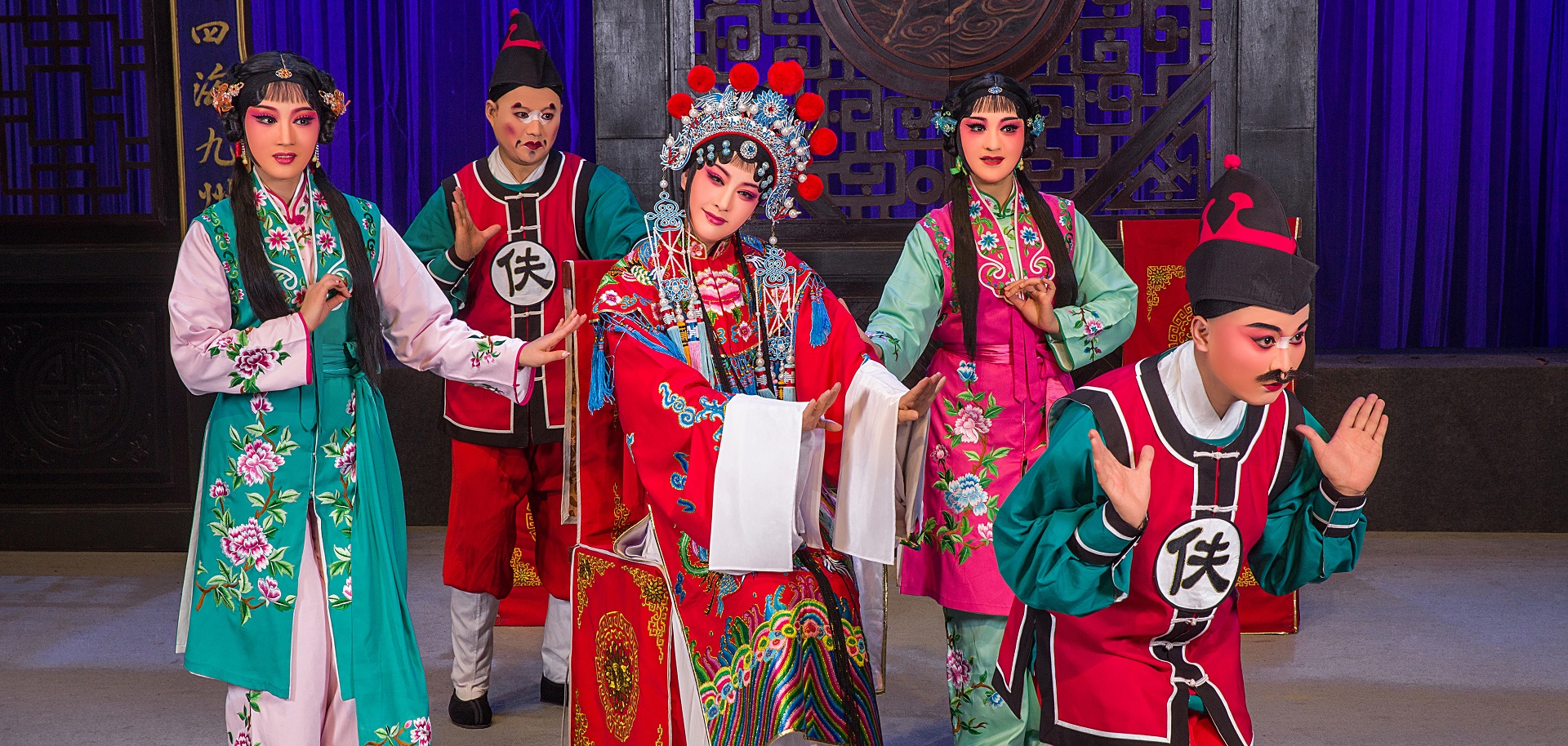
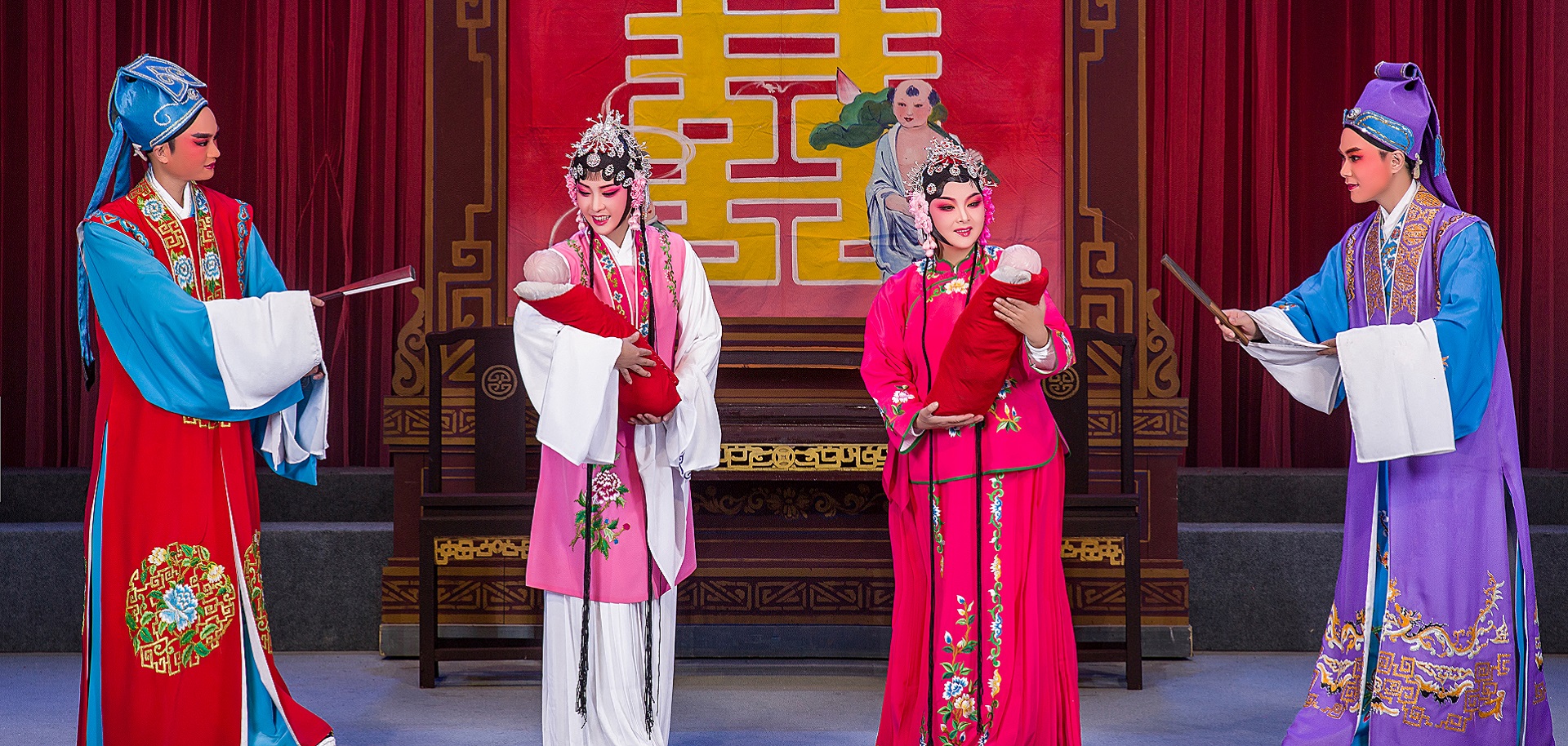

 Top
Top $320
$320  $250
$250  $150
$150
